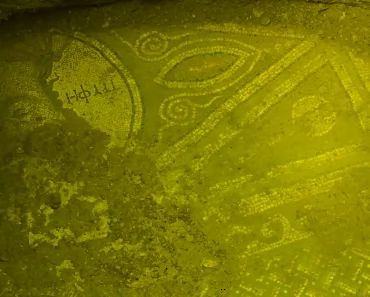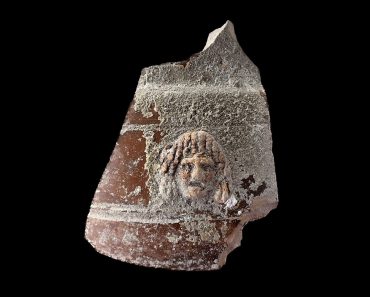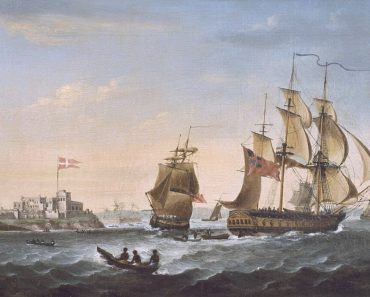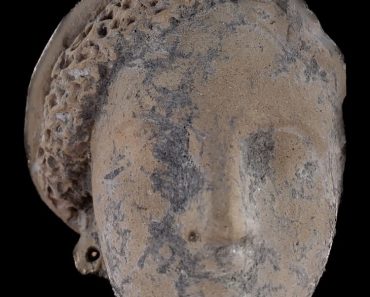Nicosia, Cyprus – May 4, 2025 – Turkish Cypriot leader Ersin Tatar sparked outrage yesterday by claiming that the Ottomans arrived in Cyprus before the Greeks, a statement swiftly debunked by historical evidence and met with sharp criticism.
The controversy unfolded as Turkish President Recep Tayyip Erdogan visited the Turkish-occupied north of Cyprus, where his own remarks drew condemnation from Athens, further escalating tensions on the divided island.
Tatar, speaking in Lefkosia, argued that Ottoman presence predated Greek settlement, a claim central to his narrative advocating for Turkish Cypriot sovereignty. However, the ancient city of Salamis, founded by Greek settlers in the 11th century BCE—over 26 centuries before the Ottoman conquest of 1571—directly contradicts his assertion. Greek inscriptions etched into Salamis’ ruins, including its ancient floors, serve as undeniable evidence of early Greek presence. “You can’t read the inscriptions on the floor of Salamis, can you, Ersin? They’re in Greek,” a Greek Cypriot historian remarked anonymously, underscoring the archaeological record.
Tatar’s statement coincided with Erdogan’s visit to the Turkish-occupied north on Saturday, where he inaugurated a new presidential complex and made provocative remarks. “We, the Turkish nation and the Turkish Cypriots, are the owners of this land. Whoever doesn’t know this must learn it,” Erdogan declared, according to Kathimerini (www.ekathimerini.com). Greece swiftly decried the comments, warning that such rhetoric undermines UN-led peace efforts. “At a time when a significant effort is being made by the UN Secretary General on the Cyprus problem… any action to create a fait accompli in the occupied territories is an extremely negative development,” Greek diplomatic sources stated on Sunday.
Athens reiterated its commitment to Cyprus’ reunification under the UN framework, emphasizing that a just solution would benefit all Cypriots and regional stability. The UN has recently resumed informal talks, with Maria Angela Holguin Cuellar appointed as Personal Envoy, but progress remains stalled.
Cyprus has been divided since 1974, when Turkey invaded following a Greece-backed coup, occupying the northern third of the island. Turkey, which maintains over 35,000 troops in the north, is the only country to recognize the Turkish Cypriot declaration of independence. Tatar’s historical revisionism and Erdogan’s assertive rhetoric have deepened divisions, with Greek Cypriot President Nikos Christodoulides condemning the former as “distorting history” and urging renewed focus on peace talks.
Local sentiment reflects growing unease. Turkish Cypriot activists, wary of Ankara’s influence, fear Tatar’s claims could inflame communal strife, while protests against Turkey’s sway over northern Cyprus’ education system persist. As the island marks 51 years of division, the clash over historical narratives and territorial claims continues to hinder reconciliation, leaving Greek and Turkish Cypriots divided over their shared homeland’s future.







